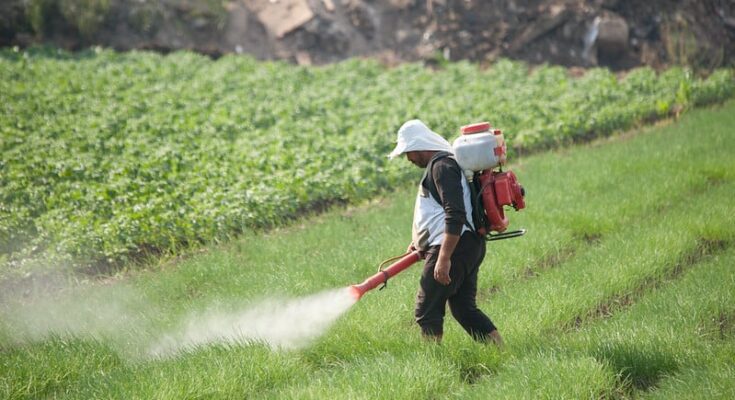Modern farming feeds many people because it uses pesticides. These chemicals help grow food, but they also cause harm. A new study shows that pesticides hurt plants, animals, and people.
This study found that the risk of getting cancer from pesticides is similar to the risk from smoking. Smoking is known to cause cancer, and now researchers say pesticides might be just as dangerous.
Isain Zapata, an assistant professor of research and statistics at Rocky Vista University in Colorado, stated that using agricultural pesticides can cause certain cancers at rates similar to smoking.
Farmers and nearby people at risk of cancer
Farmers and farm workers aren’t the only ones at higher risk of cancer. People living nearby or downwind are also in danger.
Professor Zapata explained that even those who aren’t farmers but live in the proximity of heavy agricultural areas are exposed to many pesticides. These chemicals become part of their environment.
The lead author and his team discovered that simply living near farms increases a person’s risk of cancer. In some cases, this risk was even higher than that of smoking. The highest cancer risks were for non-Hodgkin’s lymphoma, leukemia, and bladder cancer.
Professor Zapata addressed the question of whether one or two pesticides are more dangerous than others.
Pesticides as big a cancer risk as smoking, study finds
Pesticides may cause cancer on a level equivalent to smoking cigarettes, a new study has found. pic.twitter.com/lESRbYlEzp
— Riddor Safety International (@RiddorL) July 26, 2024
Zapata explained that while the study provides a list of major pesticides linked to specific cancers, the real danger comes from the combination of all pesticides rather than just one or two. The list includes 69 different agricultural pesticides, with usage data available from the United States Geological Survey.
These pesticides are not utilized individually but are applied as mixtures, known as “pesticide cocktails.” Therefore, it is unlikely that only one or even a few pesticides are responsible for the increased cancer risk. Professor Zapata warned that, in reality, people are exposed to a mix of pesticides in their area rather than just a single type.
Cancer risks from pesticide exposure
The new study is the first comprehensive look at cancer risks from pesticide exposure on a national level, considering the entire population. It is also the first time pesticide-related cancer risks have been compared to a well-known risk factor such as smoking.
Zapata explained that they included smoking data to provide context for the issue. They were surprised to find that the cancer risk estimates from pesticide exposure were in similar ranges to those from smoking.
The team noted that cancer risk factors are complex, and broad assessments might not capture individual outcomes. They discovered that geography significantly affects cancer risk.



